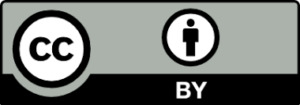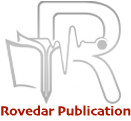Overview
|
COPE Principles of Transparency and Best Practice in Scholarly Publishing
The following are the COPE Principles of Transparency and Best Practice in Scholarly Publishing. Rovedar policy or procedure that addresses specific principles is stated or linked below each principle:
- Peer review process: Rovedar journals are single-blind peer-reviewed electronic publications concerned with the fields of particularly in veterinary science, medicine, environmental science, and education. In this type of peer-review, the author has no knowledge of the reviewers. This is the most common form of peer review among science journals. See the Peer-review for more details.
- Governing Body: Rovedar advisory board is comprised of all Rovedar journal editors and selected other distinguished academics. The purpose of the advisory board is to consult with Rovedar management regarding publication policies and procedures. Advisory board membership is by invitation only. See the Rovedar Editorial Advisory Board for the list of current members here. Rovedar journals have a very strong editorial board, whose members are recognized experts in the subject areas included within the journal’s scope. The full names and affiliations of the journal’s editors are provided on the journal’s website.
- Contact information: All Rovedar journals have assigned editors. The journal editor’s name and university affiliation are on the individual journal’s webpage along with the editor’s email address. Moreover, each journal provides the contact information for its editorial office. The contact information of Rovedar is provided on the Contact Us webpage.
- Author fees/Access: The journal’s database is fully open access and full texts of published articles are available for everyone who can get access to the journal website free of charge. Besides, article processing (tracking, editing, formatting, DOI, plagiarism checker tool, page design, online publication, hosting, etc.) has a considerable cost for each journal’s team. Since most Rovedar Journals do not charge for access, they are supported by Rovedar until the end of 2023. Authors can also find about the processing charge of each journal on the Author Guideline webpage.
- Copyright: Journals made clear the type of copyright under which authors’ work will be published. The following copyright statement is included at the bottom of the title page of every journal manuscript published since September 2023:
 The Author(s). Published by Rovedar. This is an open-access article distributed under the terms of the Creative Commons Attribution License (http://creativecommons.org/licenses/by/4.0), which permits unrestricted use, distribution, and reproduction in any medium, provided the original work is properly cited.
The Author(s). Published by Rovedar. This is an open-access article distributed under the terms of the Creative Commons Attribution License (http://creativecommons.org/licenses/by/4.0), which permits unrestricted use, distribution, and reproduction in any medium, provided the original work is properly cited. - Identification of and dealing with allegations of research misconduct: As part of the submission process, all Rovedar authors certify that the submitted manuscript is their own original work that has not been previously published in whole or part in an academic journal or other copyrighted material. Authors certify that the submitted manuscript is not currently being reviewed for publication consideration by another journal or other copyrighted material. Author(s) agree to and accept all the terms and conditions published herein including the Rovedar Publication Policy, Rovedar Research Misconduct Policy, and submission guidelines. All manuscripts received for review are submitted to an online plagiarism detection website (iThenticate) to verify authenticity.
- Ownership and management: Rovedar was founded by Dr. Daryoush Babazadeh (DVM, DVSc, PhD) in 2021 as a non-profit and non-stock corporation in Türkiye (Company no. 0735181270300001; Tax No: 7351812703). Rovedar is not affiliated with any other organization or university.
- Website: Rovedar website is audited on a bi-annual basis, checking for nonfunctioning links, misspellings, grammatical errors, and content accuracy. Additionally, Rovedar authors and readers are encouraged to report any website errors or inaccuracies, which are promptly evaluated and corrected as needed.
- Name of journal: The Rovedar journals’ names are unique and can not be easily confused with other journals.
- Conflicts of interest: Rovedar is committed to high standards of academic publishing principles. Rovedar requires all editors, authors, reviewers, and staff to disclose any potential conflicts of interest that might affect professional judgment as it relates to the editorial and peer review process of submitted manuscripts. For the purposes of this disclosure statement, a conflict of interest occurs when an editor, author, or reviewer has a beneficial or personal relationship with a third party that could bias or compromise his or her academic or professional objectivity. Editors, reviewers, and authors are responsible for disclosing financial and other potential conflicts of interest that could potentially impact your submission or reviews. Editors and Reviewers must complete the conflict of interest disclosure form. Authors must complete the form if they have a potential conflict of interest to disclose. Otherwise, undisclosed conflicts of interest in a submitted manuscript will be handled according to COPE guidelines. See the Rovedar Conflict of Interest Policy.
- Access: All Rovedar journals are published online, open access. No subscription charge is required to read or download Rovedar published manuscripts.
- Revenue sources: Rovedar is a non-profit and non-stock corporation. Rovedar is a debt-free company and is not repaying loans or investments, but as a high-quality gold open-access publisher, it should pay for journal operations of newly established journals (15%), publication costs (10%), communication (5%), IT & innovation (12%), growth (16%), general & administration expenditure (5%), discounts and waivers (23%), differential article type pricing structure (2%), and general costs, such as membership in international publishing organizations and tax (12%). All revenues are generated from the author’s publication fees.
- Advertising: Advertising is not allowed and accepted on the Rovedar website or in Rovedar publications.
- Publishing schedule: The periodicity at which Rovedar journals publish their articles is clearly indicated on the journal homepage.
- Archiving: Rovedar maintains all journals on the www.rovedar.com website journals page and their published articles on https://rovedar.com/published-articles/. Links to all published manuscripts are also accessible through the individual journals’ web pages. Rovedar journals ensure the long-term preservation of their published content to Portico, PKP (LOCKSS), and Internet archive systems to create a distributed archiving system among participating libraries and permit those libraries to create permanent archives of the journal for purposes of preservation and restoration.
- Direct marketing: Rovedar maintains a contact list of academics worldwide. The information contained in this contact list includes the academic’s First Name, Last Name, University, and Email Address. Individuals may add or remove themselves to/from the list by contacting the journal.
Individuals on the list may receive periodic emails announcing journal call for papers, retractions or corrections, and other notices of significance to Rovedar stakeholders. At no time will Rovedar sell, give, or otherwise distribute the information contained in the list to an outside individual or organization. At no time will Rovedar contact individuals on the list for a third party or with information not specifically related to Rovedar journals.
Editors or review-board members may contact a manuscript author with an invitation to submit for review if they identify a manuscript that appears suitable for a particular Rovedar journal. At no time will the editor or review board member imply that the paper has been pre-accepted. Editors or review-board members should include the following statement in all invitations to submit:Rovedar is a privately-owned, non-profit publishing corporation incorporated and operating in Türkiye. Rrevenues are generated from author fees. See Author Guideline webpage for the complete fee structure. Not all institutions recognize publications in non-profit or author-pays journals for tenure and promotion. Please check with your institution prior to submission.
